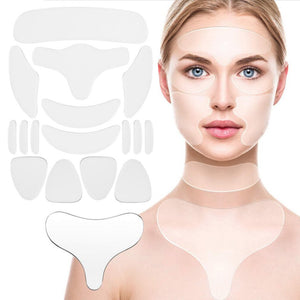
In today’s world, food trends are often associated with health and wellness. From berry bowls and Erewhon smoothies to chia pudding and wheat germ sprinkled on grapefruit, many of us strive to embrace foods that promise to improve our health and longevity.
But when does an interest in healthy eating cross the line into something more harmful?
The answer may lie in a condition known as orthorexia, and the staff at Nifty Cool Stuff, our online lifestyle store, wants you to be aware of it during your journey to optimum – as opposed to extreme – eating.
What is Orthorexia?
The term “orthorexia” was first coined by Dr. Steven Bratman in 1997, combining the Greek words orthos (right) and orexis (appetite) to describe an obsession with eating foods that one believes are pure, healthy, or beneficial. While the intention behind this behavior may start off as positive, a growing fixation on “perfect” eating habits can result in emotional distress and physical harm.
Bratman categorized orthorexia into two stages: “healthy orthorexia,” where someone is simply passionate about eating healthily without extreme behaviors, and “orthorexia nervosa,” where the individual becomes obsessively consumed by their eating habits.

Bratman emphasized that while many people enjoy healthy eating without becoming obsessive, the key difference lies in how this obsession can interfere with a person’s mental health, social life, and even their physical well being.
Signs of Orthorexia
Orthorexia can be a tricky condition to diagnose because, on the surface, the person may appear to be living a healthy lifestyle. However, it goes beyond the desire to eat well; it becomes an all-consuming obsession that can harm mental and physical health.

Some common signs of orthorexia include:
- Rigid Food Rules: Individuals with orthorexia often follow strict and inflexible food rules, such as avoiding entire food groups or specific ingredients they deem unhealthy.
- Food as a Source of Stress: What was once a source of nourishment and pleasure becomes a source of anxiety and stress. For example, the thought of eating something “unhealthy” can cause overwhelming guilt or anxiety.
- Avoiding Social Events: Social gatherings that involve food, like dinners with friends or birthday parties, may be avoided to prevent breaking their strict food rules.
- Perfectionism: Many individuals with orthorexia have a perfectionist mindset, often striving for an unrealistic standard of health.
- Malnutrition: Despite consuming enough calories, a person with orthorexia may suffer from malnutrition because their restricted diet doesn’t provide the full spectrum of nutrients their body needs.

Orthorexia is also linked to other psychological conditions such as anxiety, obsessive-compulsive disorder (OCD), and perfectionism. In fact, it’s commonly observed in high-risk groups such as athletes, healthcare professionals, and individuals in industries that emphasize physical appearance or performance.
The Role of Social Media
One factor contributing to the rise of orthorexia is the proliferation of social media. Platforms like Instagram and TikTok have amplified the “clean eating” culture, where influencers share their daily meals and routines, often portraying an idealized version of healthy living.
These posts can perpetuate unrealistic expectations about what a “perfect” diet looks like and create pressure to conform to these ideals.

Studies suggest that the use of social media correlates with an increase in orthorexia symptoms.
Online communities dedicated to clean eating can provide validation, making it harder for individuals to recognize when their behavior is unhealthy. The pressure to fit in and the desire to be part of these online communities can intensify the need for control over what one eats, leading to obsessive behaviors.
Consequences of Orthorexia
Orthorexia can take a significant toll on both mental and physical health. Despite adhering to what seems like a healthy diet, the extreme restrictions can lead to nutrient deficiencies, which can impact everything from energy levels to bone health.

Emotionally, individuals may feel isolated or distressed by their inability to enjoy food in a relaxed, balanced way.
In some cases, orthorexia can lead to other eating disorders, as the individual’s focus shifts from achieving health to maintaining control over food choices. Furthermore, the obsession with food can hinder social and personal relationships, as the person’s eating habits interfere with social interactions or create anxiety around eating in public.
How to Treat Orthorexia
Treatment for orthorexia typically involves a multi-disciplinary approach that addresses both the mental and physical aspects of the disorder.

Below are key steps in the recovery process:
- Seek Professional Help: Orthorexia requires a team of healthcare professionals, including a therapist, psychiatrist, and dietitian, who can work together to help the individual regain a balanced relationship with food.
- Start with Self-Awareness: The first step in treatment is recognizing the problem. Self-screening tools, such as those provided by the National Eating Disorders Association (NEDA), can help individuals assess whether they are struggling with disordered eating.
- Enlist Family Support: Families can play a crucial role in recovery by offering nonjudgmental support. Avoid using labels such as “good” or “bad” when it comes to food and focus on creating an environment that encourages balance and flexibility.

- Challenge the Food Rules: Treatment often involves gradually challenging the rigid food rules that have been established. For example, patients may be asked to reintroduce previously “forbidden” foods back into their diet, sometimes with the support of a therapist or dietitian.
- Limit Social Media Consumption: Reducing time spent on platforms that perpetuate unrealistic beauty standards or extreme eating habits can help mitigate the pressure to conform. Setting limits on screen time and being mindful of the content one consumes can also be beneficial.
- Focus on Mental Health: Since orthorexia is often rooted in anxiety or obsessive-compulsive tendencies, addressing the underlying mental health issues is key to recovery. Cognitive-Behavioral Therapy (CBT) and other forms of psychotherapy can help individuals manage their anxiety and perfectionism.

Conclusion
Orthorexia is a complex and often overlooked eating disorder that can be harmful despite its roots in seemingly healthy eating. Recognizing the signs early and seeking professional help is crucial for those struggling with this condition.
With the right treatment and support, individuals can learn to develop a healthier relationship with food, one that focuses on nourishment, joy, and balance instead of obsession.

Nifty Cool Stuff features quality kitchen products to enhance these traits. Feel free to give us a click and see which items can work for you.


















































